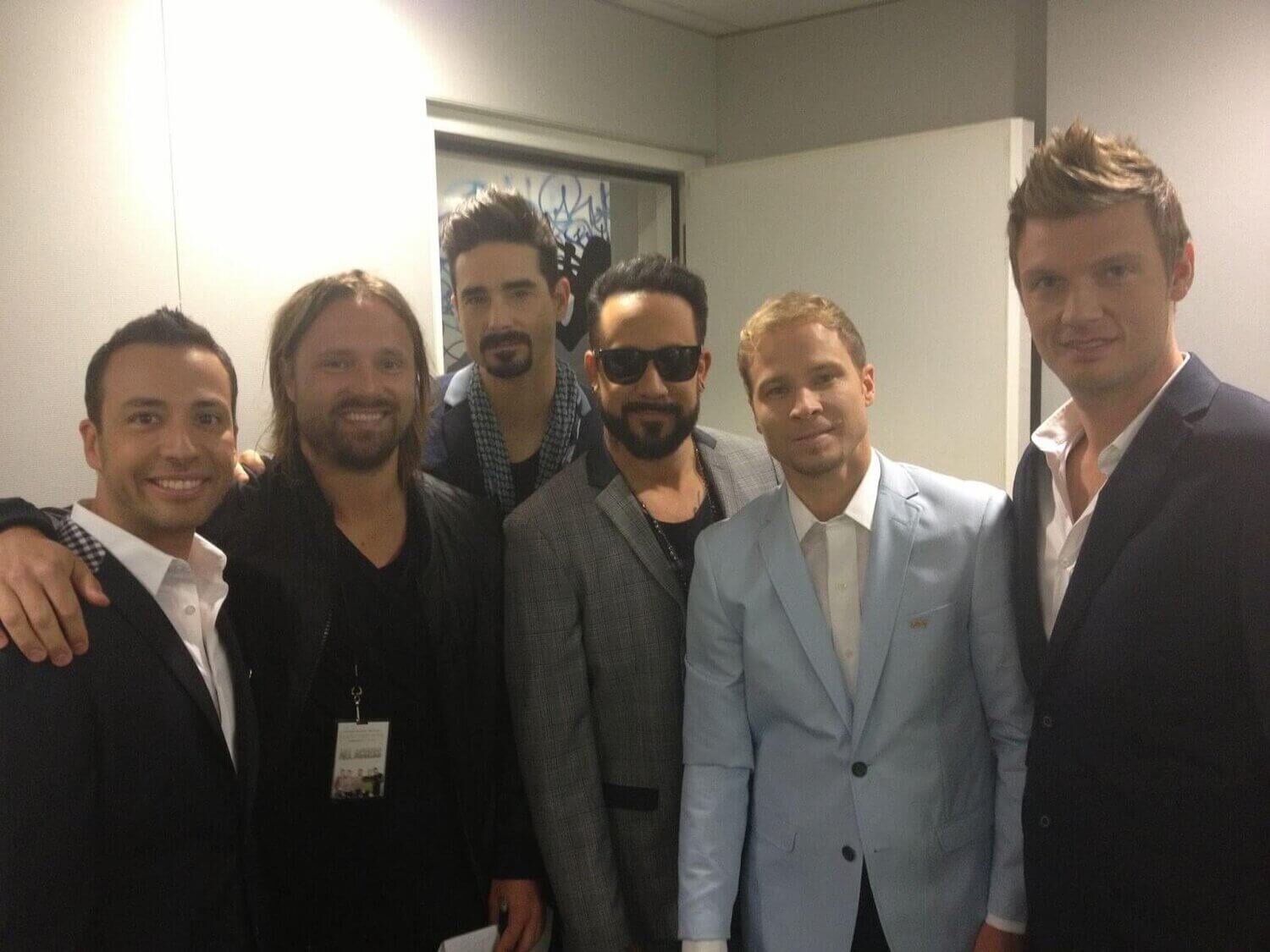If you listened to pop music in the late 90s and 2000s then you’ve heard and loved a song by Max Martin.
It’s just an undeniable fact that Martin has influenced or directly been a part of a huge number of chart-topping hits from the Backstreet Boys, Britney Spears, Ariana Grande, The Weeknd, Pink, and more. All that tallies up to over 50 top 10 hits since 1999 or 135 million single sales.
But Max Martin isn’t the big-name celebrity you’d expect.
His personal band tracks only 1000 views on youtube (not that he's spending much time there these days) and he isn’t the sort of person that craves the spotlight.
Does any of this sound familiar? That’s because Max Martin is the second in a line of hugely successful producers that mentor each-other and welcome new talent instead of stymieing it. Denniz Pop (another unknown but amazing producer) mentored Max Martin just like Max Martin mentored Benny Blanco.
If there’s one thing in common with all of these incredible producers, it’s that they are extraordinarily humble, especially in an industry known for its braggadocious bestsellers.
Making sure people like you is a surefire way to increase your chances of getting in the studio with talent, then it’s just a question of showing them what you can do.
Background
To learn about Max Martin you have to go back in time to 1998. At 27 years old, Martin was already a part of the music industry, but tragically, that year his friend and aforementioned mentor Denniz Pop died. That same year however Martin made a breakthrough with his first top 100 charting single “...Baby One More Time” by Britney Spears.
Then largely unknown, Britney Spears would continue to work with Martin and find even more success but it was actually with the Backstreet Boys, that Martin developed a special artistic relationship.
Since Martin started off as a singer, the vocal-heavy music from the Backstreet boys was right up his alley, and together they went far. Something consistent across many musical partnerships with Martin is that the more he knows the individual personally, the better their vocals will be.
Whether that is from a better idea of what works for the singer, a better working environment or a bit of both is unclear but one thing is for certain, when you make a song with Max Martin, you can be sure the vocals are the most important element.
That’s not to say that a good singer needs to show off on the recording. Martin himself has stated that the greatest thing is when an amazing singer sings something very simple.
The producer's job is to convince them that doing something simple is enough and that they feel secure enough to just concentrate on telling the story. Through Martin’s music, this effect can be heard, but also seen, literally.
An analysis of some of his most popular songs revealed that there was an average of 4th-grade reading level in the lyrics. Easy to read, and easy to understand makes it all that more accessible to a wide audience, no surprise his songs are loved the world over.
Keep it Simple
This simple philosophy traces back to the influences of Martin’s upbringing.
As a child he would listen to some of his parents’ favourite records, CCR, Elton John and The Beatles but not being able to speak English, instead, the melody became the most important aspect.
This emphasis on simplicity has been with Martin ever since his first charting single in 1998 to today and it has been integral to his success as a musician. In pop music, this idea is even more important. Instead of a full song, sometimes you only have 30 seconds to get your point across. Therefore, those first few seconds are most important, think of it as a song ID.
If people don’t know what they're in for after those first few seconds, they are likely to tune out instead of stay on the dance floor and enjoy it. Again, these clear and short intros are ever-present through Martin’s chart-topping hits. In addition, to a quick intro, the chorus of the song (arguably the most catchy and memorable part) is also introduced extremely fast, with an average of only 31 seconds.
Starting your song
But how does a song start? And this time I’m not referring to the introduction. I’m talking about that spark of inspiration that grows to be a masterpiece. According to Max Martin at the beginning of his career, it started out as an individual pursuit.
Starting with the melody, the most important thing is catchiness. If you find it getting stuck in your own head, or humming along as you fall asleep then you know you have something that will resonate with others. Some melodies come while doing completely different activities like lying in bed or working out. Max Martin’s advice is that you need to record it while you can even if it means disturbing a great sleep. “You think that you’re gonna wake up the next day and remember it but you never do”, he reminisces.
Once you have that bit of gold, it’s important to not overthink it. A song can be overwritten, and only so much information you can fit in it without it getting confusing(more than 3-4 different parts). Use the one riff as much as you can, slight changes but always keeping it consistent.
This philosophy is an example of what those in the industry call “Prince Theory”. Prince is one of Max Martin’s, self-reported, biggest influences and his ability to churn out catchy songs (a good chunk haven’t even been released! ) is almost unparalleled in the industry and it has clearly inspired Martin greatly.
A good example of “Prince Theory” is the song Let’s go crazy, tracking at just under 4 minutes, it’s actually on the long end of a pop song, but it hides a genius secret that makes it just as catchy as a shorter one. If you listen closely you’ll notice that the verse melody is the same as the chorus melody, with only a variation in the pre-chorus, even the hook is the same as the verse! Find a good melody and make it sing as long as you can! This songwriting technique is seen again on another Max Martin track by Robyn, “Do You Know (What It Takes)”.
There’s no one solution
Finding that melody, however, can still be a challenge. And although there are strategies and formulas that can help writer’s block or the process of arranging a song, Max Martin reminds us through his amazing interview for the Polar Music Prize that there is never going to be one best process.
To get to the bottom of what makes pop songs work however you can always treat like a mechanic does a car engine. To find out how it works you have to open it up and take things apart to its basic element. Although it's not all math, and not all a formula, “what we have is a toolbox of problem-solving formulas,” says Martin. It has to come from inspiration in the beginning and sometimes writing isn’t a clear path, if you get stuck, then maybe it’s time to call on those theories for direction but at the end of the day, they are guidelines, not solutions.
Max Martin himself has struggled with this through his career. After an incredible debut and a couple of years defining the pop music genre all on his own, in 2001-2002 he closed his studio and stopped making so many hits, in part because he had a daughter, but also because he seemed to have lost the key.
His songs weren’t charting the way they used to and for a brief while, Martin was convinced that everyone else’s taste was wrong and he was right. In retrospect, this seems out of touch, no one person can define what is a good song and what’s not, and he learned over those years that he could be wrong as well. The world had moved on and music had changed.
New players on the pop music scene had started making their mark so Max Martin went back to the basics. He started listening to some new music, examining its basic components and moved to New York. It’s clear that this time was spent well when he came back to the charts in 2004 with “Since you’ve been gone” Kelly Clarkson and a whole new Indie rock influence.
Try something new
This adjustment proved that sometimes, in order to change you need to impose new limitations on your self. During this time, Max Martin moved to New York and tried to learn guitar while stuck in a hotel room. Having just a drumming background, Martin is not the multiinstrumentalist virtuoso you might expect, so without having a strong background he didn’t know what each chord was and had to go entirely by ear. Similar to how vocal melodies were especially important due to not understanding the language (at first) this forced Martin to write guitar melodies that were simple yet still beautiful, nothing could be hidden.
From then on the guitar was very present in his music and it worked to revitalize his career in a huge way. Giving yourself fewer options to write, whether that be an unfamiliar instrument or random word generator can force you to write better melodies instead of making this too complicated. In the words of Max Martin himself, “Less is More”, write something simple that is still interesting and unique.
These days Max Martin is still going strong, still taking risks, making things that sound totally different and new. He has stated that a big source of motivation is to keep innovating and working with new talent. Surrounding yourself with people who motivate and challenge you, force you to evolve, because after all, stagnation is the worst thing an artist can do.
Conclusion
“I think every creative person has an ego but you really have no choice but to let other people’s talent touch you and inspire you, because if you don’t then what’s the point.” -Max Martin
Collaboration, innovation and working with simplicity is the name of the game for Max Martin’s biggest hits. Once you’ve identified these pillars of success you’ll find them everywhere in his songs, and most modern pop music.
So much more can be said about Martin but to really get inspired you just have to get familiar with his music. Even someone who does not typically listen to pop has so much to learn from this incredibly talented musician and producer.
- By Erik Steiner
For more producer spotlights and music production tips of all varieties, be sure to keep up to date with what’s going on at Jony Studios through our blog or if you’re interested in learning about what we can do to take your sound to the next level, check out our services page.







